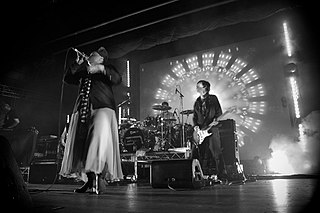
Groove Armada are an English electronic music duo, composed of Andy Cato and Tom Findlay. They achieved chart success with their singles "At the River", "I See You Baby" and "Superstylin'". The duo have released nine studio albums, four of which have charted in the UK Albums Chart top 50.

"Into the Groove" is a song recorded by American singer Madonna, and featured on the 1985 film Desperately Seeking Susan. Written and produced by both Madonna and Stephen Bray, the main inspiration behind the song was the dance floor; the singer wrote it while watching a Latin American man to whom she was attracted. Its instrumentation features synthesizers and drum machines, with Madonna's voice being double tracked on the chorus. Sexual innuendos and undertones are present throughout the lyrics, which are written as an invitation to dance with the singer. Originally written for her friend Mark Kamins, Madonna later decided to use it on the film, as one of the scenes needed a dance song. It was later added to the 1985 international re-issue of her second studio album, Like a Virgin (1984), and in her compilations You Can Dance (1987), The Immaculate Collection (1990), Celebration (2009), and Finally Enough Love: 50 Number Ones (2022).

Vertigo is the second studio album by the British electronic music duo Groove Armada, released in 1999 on the Jive Electro record label. It contains the well-known singles "At the River" and "I See You Baby".
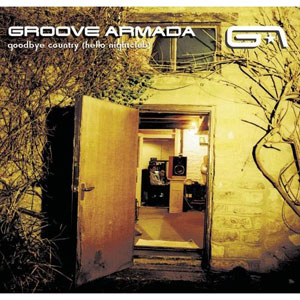
Goodbye Country (Hello Nightclub) is the third studio album by the English electronica duo Groove Armada. It was released on 10 September 2001 on the Jive Electro record label. The title of the album was meant to differentiate it from the band's previous album, Vertigo, as being more upbeat and less chill-out.

Soundboy Rock is the fifth studio album by English electronic music duo Groove Armada, released on 4 May 2007 by Columbia Records.
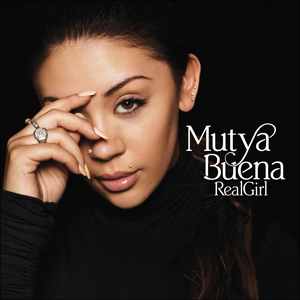
Real Girl is the only studio album by British singer Mutya Buena. It was released on 4 June 2007 via Island Records. Following her departure from British girl group Sugababes in December 2005, Buena later signed a new record deal with Island Records, which was the same label Sugababes was signed to, and began work on the album.
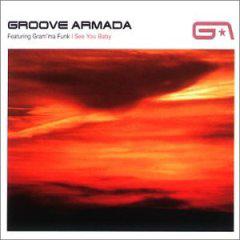
"I See You Baby" is a song by British duo Groove Armada, featuring Gram'ma Funk on vocals. The song was also recorded with the chorus line "shakin' that thang" for various markets around the world, and also for use in American TV commercials. The song was later remixed by Fatboy Slim, with this latter version appearing in airplay. It was also remixed by Futureshock.

"Get Down" is a song by English electronic music group Groove Armada, featuring vocals from Stush and unofficially credited Red Rat. It was released officially on 23 April 2007, after it had appeared as an extended play (EP) on the iTunes Store. The CD and downloads contain remixes of the song. "Get Down" peaked at number nine on the UK Singles Chart, becoming Groove Armada's first top-10 single, and reached number one on the UK Dance Singles Chart. The pixel art album cover was designed by eBoy.

"Song 4 Mutya (Out of Control)" is a song produced by British music duo Groove Armada, featuring vocals by recording artist Mutya Buena. Initially intended to feature British singer Estelle, the duo ultimately decided to collaborate with Buena on the song following her departure from girl group Sugababes in December 2005. Supported by a new wave-inspired beat, dance synthesizers and a bass line, it is an uptempo electronic and electropop song. The lyrics were interpreted by the media as an "insult" to Buena's Sugababes replacement Amelle Berrabah, although Buena herself has denied such allegations.
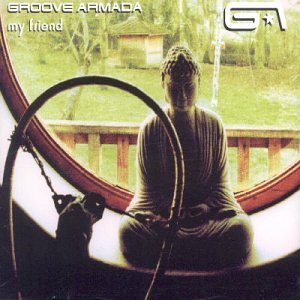
"My Friend" is a song by English electronic music duo Groove Armada, released as the second single from their third studio album, Goodbye Country (2001), on 5 November 2001.

"At the River" is a song by British duo Groove Armada. It was released as a single in 1997 on 7-inch vinyl, limited to 500 copies. The song appeared on the duo's debut album Northern Star and again on their second album, Vertigo, released in April 1999.

"Be Alone No More" is the debut single by British R&B vocal quartet Another Level, released on 16 February 1998 by Northwestside Records. It is from their eponymous debut album (1998), and features American rapper Jay-Z. The song was written by Steven Dubin, Andrea Martin and Ivan Matias. In 1999, it was released a second time in remix form together with a cover of the Simply Red song "Holding Back the Years". The two releases peaked at number six and number eleven in the UK respectively. Several UK garage remixes were also released, such as the 'Dubmonsters Mix' and 'Another Groove Mix'. The latter is a mashup with Double 99's "RipGroove".

Barry White Sings for Someone You Love is the self-produced seventh album by soul singer Barry White, released in 1977 on the 20th Century label.
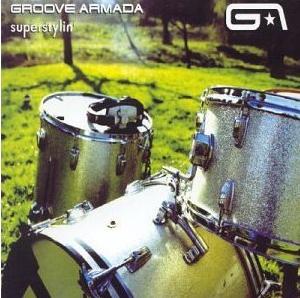
"Superstylin'" is a song by English electronic duo Groove Armada, released as the band's first single on 13 August 2001, from the album Goodbye Country . Vocals were performed by Groove Armada's long-time vocalist MC M.A.D.. Groove Armada credited Daniels for the cross-genre sound of the track, saying it was house music with influences of dancehall, reggae, and dub, with a speed garage bassline.

The discography of Groove Armada, a British electronic music duo, consists of eight studio albums, thirteen compilation albums, and twenty-four singles.
"Purple Haze" is a song by English electronic music duo Groove Armada, taken from their fourth studio album, Lovebox (2002). The song contains elements from "April, Spring, Summers and Wednesdays", performed by English rock band Status Quo. Released on 21 October 2002, "Purple Haze" reached number 36 on the UK Singles Chart and number 38 in Italy.
Celetia Martin, also known simply as Celetia, is a British singer and songwriter.

"Real Groove" is a song by Australian singer Kylie Minogue from her fifteenth studio album, Disco (2020). The song was written by Minogue, Teemu Brunila, Nico Stadi and Alida Garpestad Peck, with a sense of optimism for days ahead during the COVID-19 pandemic. Brunila and Stadi also handled the production. It is a disco-pop song with house and R&B elements and features vocoders, a funk bass and post-disco synths. The lyrics see Minogue attempting to win an ex back. A new version, a duet with English-Albanian singer Dua Lipa entitled "Studio 2054 remix", was released on 31 December 2020 as the album's third single. The remix added William Bowerman as a producer with additional instrumentation and Lipa incorporating layered vocals and new lyrics.
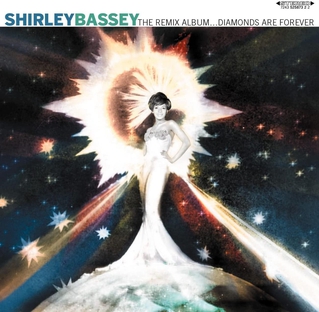
The Remix Album...Diamonds Are Forever is a remix album by Welsh singer Shirley Bassey, released in 2000. It contains some of Bassey's most popular songs, along with lesser-known Bassey tracks, remixed by contemporary DJs and producers such as Kenny "Dope" Gonzalez, Kurtis Mantronik, Nightmares on Wax, Groove Armada, Mark Brydon from Moloko, and Propellerheads, who had collaborated with Bassey three years earlier on their single, "History Repeating".
















